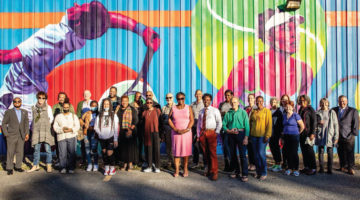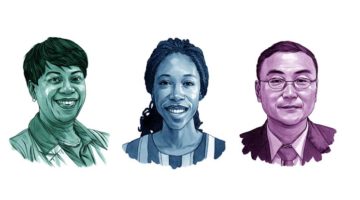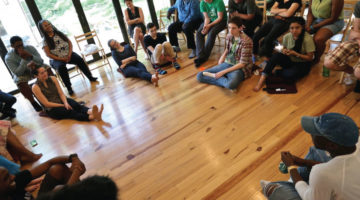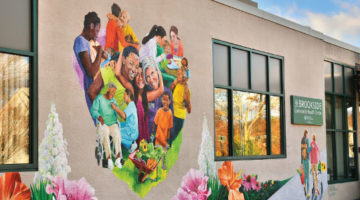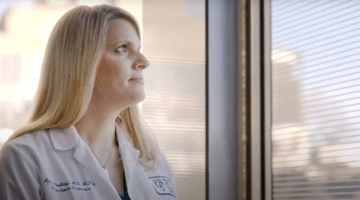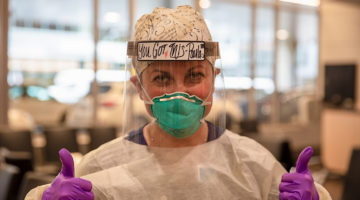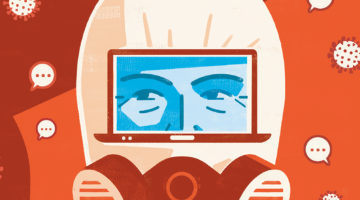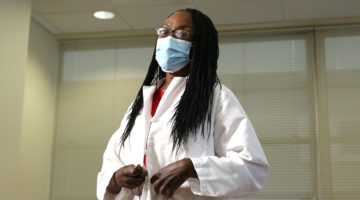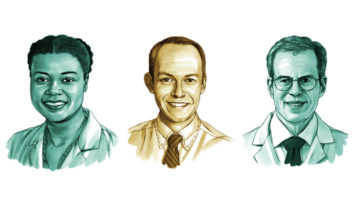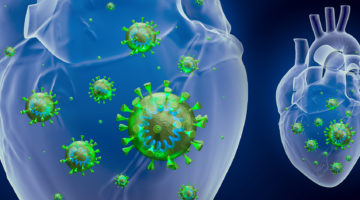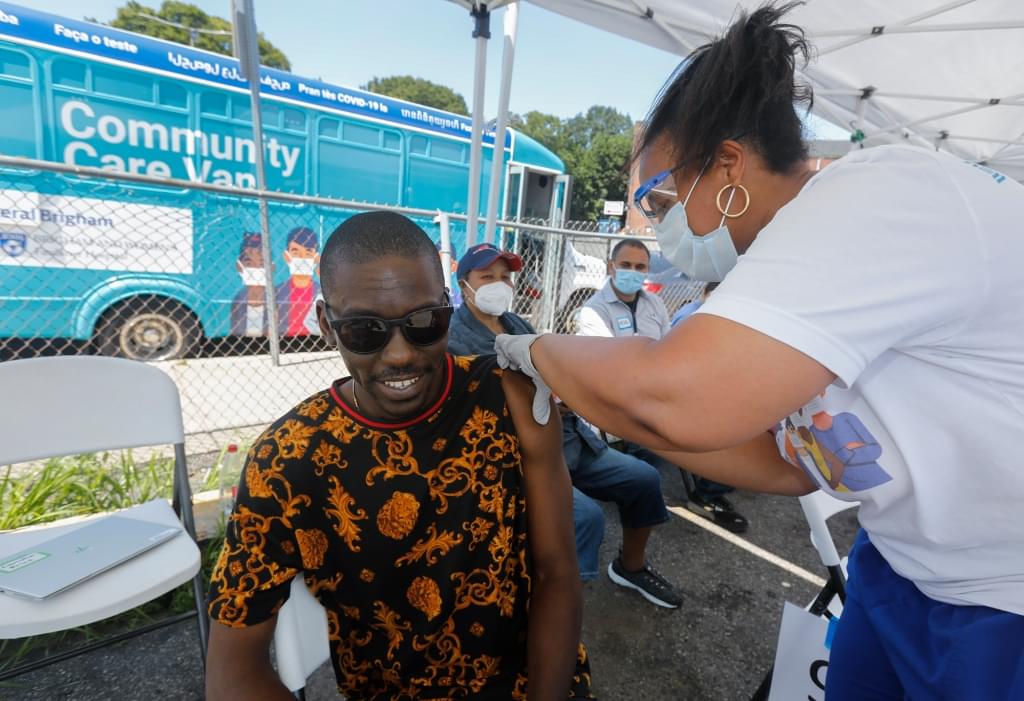
On a gray, humid morning in Jamaica Plain, the parking lot is buzzing at Brookside Community Health Center. The mobile COVID-19 vaccine clinic is in full swing. Many visitors are families of teenagers ready to receive their shots before school starts.
The feeling on the ground is captured by the colorful murals along the outer walls of Brookside—one of two community health centers run by Brigham and Women’s Hospital. The painted scenes reflect the parents, grandparents, kids, friends, neighbors, and staff who call Brookside a family in its own right.
“We are a family here,” says Mireille Louis, a community resource specialist for the mobile clinic. With warmth and humor, she guides patients from registration to their seats.
A mother with two teenage sons approaches Louis and asks her a question in Creole. Louis, who is from Haiti, responds in her native language. The women fall into easy conversation, and the mother motions for her boys to sit and wait for the nurses to administer their vaccines. Louis brings the boys care packages filled with school supplies and toiletries donated from the local nonprofit Cradles to Crayons.
From his seat, a young man calls to Louis; he asks how he can talk about the vaccine with his skeptical family members. He references the U.S.’s history of racial injustice in medical research and his family’s fear of being exploited.
“Education is a key part of our work here at the mobile clinic,” Louis says. “People are hearing so much misinformation about the vaccine that it means a lot to them to talk with someone they feel they can trust.”
She adds, “It’s so important to be patient and calm, and to stick to the facts. I feel grateful to be here helping in this way.”


